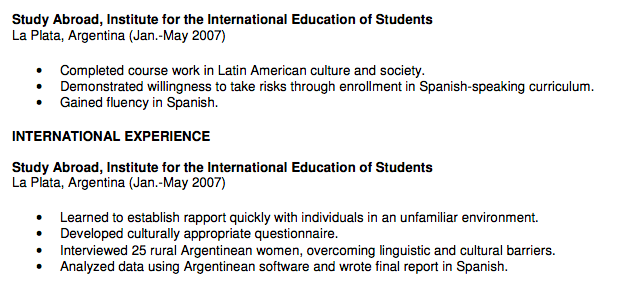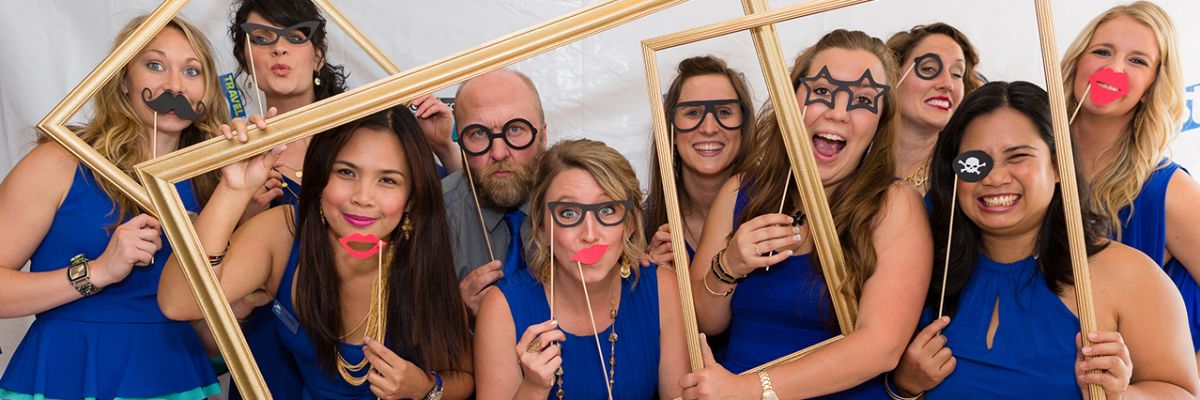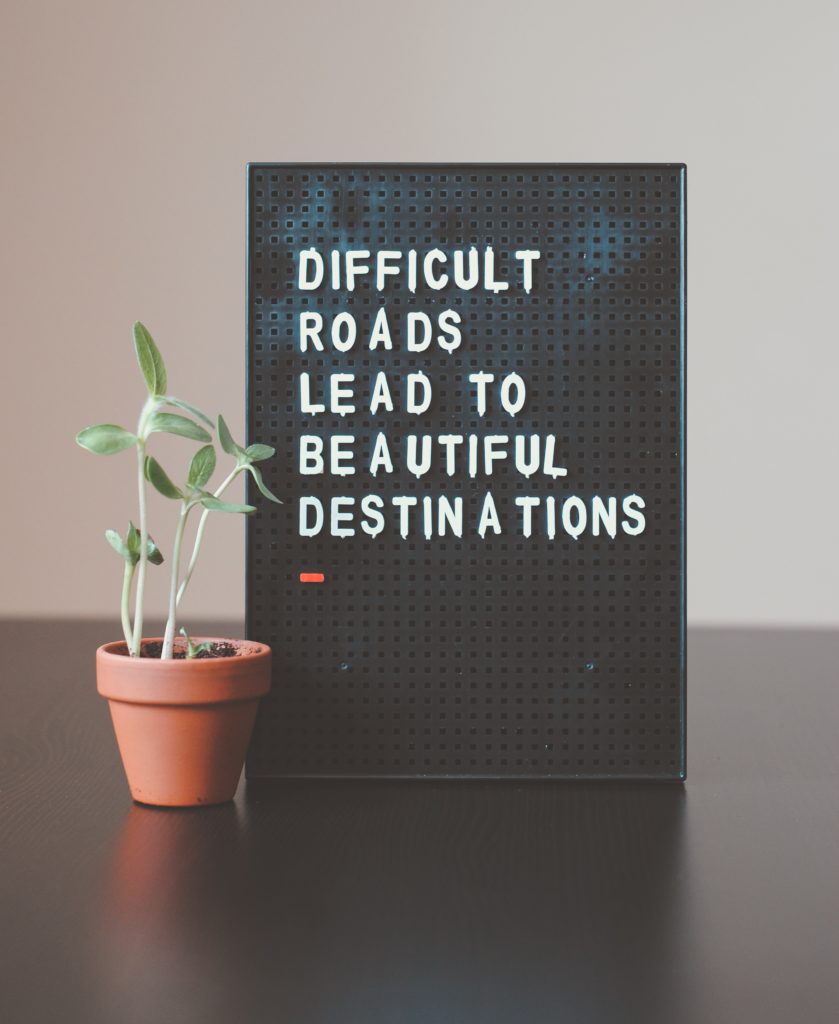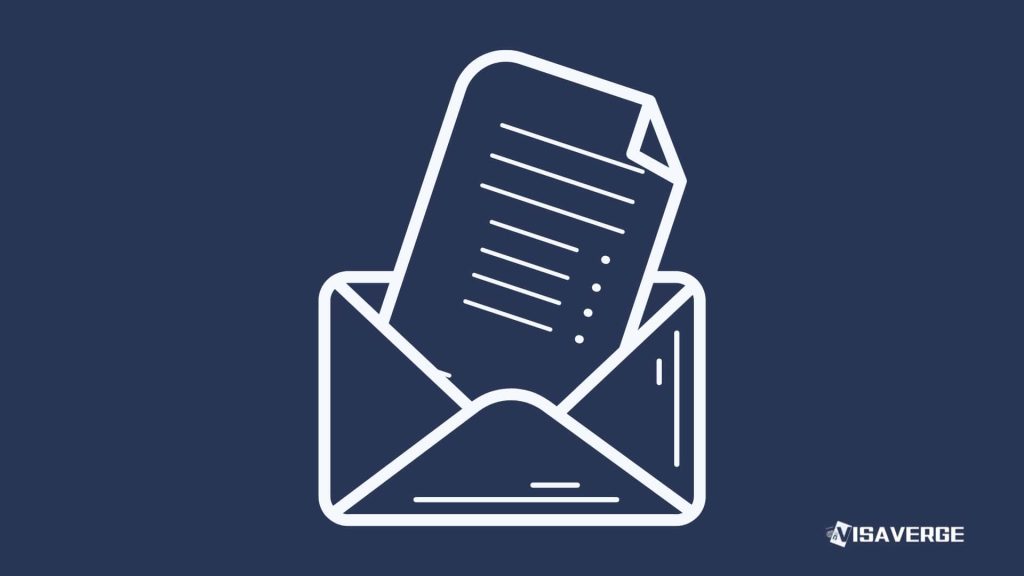10 tips for writing a great international job application
/)
Writing resumes and cover letters is hard. Writing resumes and cover letters in another language is even harder. But we think that stepping out of your comfort zone to follow your dreams of working abroad is awesome (and worth all of the application writing agony), so we’re here to help you to (literally) get there.
Most job offers start with a good application and every good application is preceded by research and more research – this helpful article might be a good starting point. Then, some of these tips should do the trick:

1. Know your resume from your CV
Even though the words are used interchangeably in English, a resume and a CV are not the same document.
Your CV is a detailed list of your career, education, and achievements – it includes (almost) everything you’ve ever done and doesn’t change for different job applications. Now, if a CV were a full-length film about your career, the resume would be the trailer: It’s much shorter – preferably one but never more than two pages – and changes as you have to tailor it to the job you’re applying for. The resume basically only covers the skills and achievements that are important for a particular job and should give the hiring manager an overview of who you are and what you can bring to the company.
2. And know when to use which
But wait, there’s more – the two documents are also used differently across the world: According to Undercover Recruiter , North Americans usually prefer resumes (unless it’s requested otherwise or you apply for an academic or research-oriented job), while recruiters and employers in the UK, Ireland, Europe, and New Zealand generally only use CVs. To make things a little easier, Australians, Indians, and South Africans use the terms interchangeably and, as a rule of thumb, resumes seem to be preferred in the private sector whereas CVs are used for public service positions. However, it will be best to ask (the HR office or a local friend) how much detail you need to provide.
3. Pick the right language
Write the application in the language the job ad is in. You can always add a translated version if the job ad language is not the country’s native language. (For example, if you reply to an English-speaking job ad in Germany, you could add both the English and the German application, but English will have priority.) You might also just have LinkedIn profiles in different languages and send the link instead of another document.
4. Customize, customize, customize
Always tailor your application to the country, the job, and the company – if you have an exceptional application that shows that you’ve done your research, you might get away with any missing or wrong formalities. Pick only the best and most relevant parts of your CV for your resume or cover letter, and edit, delete, and rearrange mercilessly to hook your audience.
5. Be open about your work permit and language skills
Add your visa status and mention the kind of permit you have. Do not hide or leave out this information, as the recruiter will find out eventually, so save them time and be honest about your status. The same goes for language skills: If you indicated that you’re fluent in a language, native speakers will immediately know if that’s true. This is not the place to cheat and exaggerate.
6. Play by the photo rules
Adding a professional-looking and high-resolution photo to your application is not always a good idea: In the U.S., Canada, the UK, and Australia, you would never attach a photo. In Germany and France, you have to add a photo. It’s important to do your research here – too many applications get thrown into the trash because they don’t follow the (photo) rules. (This is usually not because you’re not photogenic but for legal reasons, as employers don’t want to risk being accused of discrimination based on appearance.) If you’re not sure about the photo, you can always add your ( personalized ) LinkedIn URL to your resume header – that way, the recruiter/HR person still has a chance to see what you look like.
7. Meet the ultimate shortcut for European countries
If you want to work in Europe, you don’t have to reinvent the wheel when applying for jobs: Check out Europass , an online tool that will help you get all of the necessary documents to show off your skills and qualifications in an easy-to-understand way that also includes templates for your CV and cover letter.
8. Sweat the little things
When you do your research, pay particular attention to the details that can make or break an application before anyone even reads about your achievements and experience: In Germany, for example, you have to sign and date your CV at the bottom. In Japan, you have to fill out (sometimes by hand!) a rirekisho , a Japanese resume with very strict rules, or a shokumu keirekisho that shows off your work experience. In a lot of European countries, you are expected to share your age (date of birth), marital status and even the number of children, which would be an absolute deal breaker in the United States (so don’t do it!). Other important details that are different from country to country are the inclusion (or omission) of a career objective, references, ( converted ) grades, and the number of documents you need so send along with your application.
9. Get the numbers right
Let’s focus on even more details: You’ll score major points when you add the country code to your phone number and maybe even mention the time difference. The same goes for getting the date right (order of month, day, and year), and choose the correct paper format (in case the application gets printed). This shows that you’ve done your homework and really are as detail-oriented as you claim to be.
Create your Europass Cover Letter
Europass helps you to develop a structured, consistent and professional cover letter guiding you through each step. You can create new cover letters or edit existing ones using the Europass tool to create and edit cover letters.
How does Europass help?
Europass will guide you step by step through the process to help you create a good cover letter with all the essential information. You can create, store and share cover letters in 31 languages , choose from different templates to customise your application and share them easily from your Europass Library .
Create your Europass
How to write a good cover letter
A cover letter should highlight your motivation to apply for a specific job or opportunity, and demonstrate why you consider yourself to be the best candidate. Your cover letter should refer to particular examples in your CV and describe why these are relevant for the job vacancy you are applying for.
Read carefully
Read the vacancy notice carefully and highlight the skills that relate to the requirements of the position in your cover letter.
Use keywords
Use the keywords when you list your soft skills as mentioned on the vacancy notice (punctual, organised, team-player and so on).
Have short and clear paragraphs that show different aspects clearly.
Get to know the employer
Take time to research the employer to gain valuable insights into the culture of their organisation and make references in your cover letter to one or two key points.
Keep it short
You cover letter should not be longer than one page.
- First paragraph - why you are motivated to apply for the position,
- Second paragraph - how you are the most suitable candidate for the position, and
- Third Paragraph - why the company is a good match for you.
Use formal tone
Use a formal, polite tone and make sure there are no spelling mistakes.
Use simple fonts
Use simple non-decorative font styles, normal font-sizes (11-12) and optimal spacing (1 or 1.5).
Helpful EU services
Eures - the european job mobility portal.
Find jobs from all over Europe
Working abroad in other EU countries
Information, help and advice on EU rights related to work
Education and training in other EU countries
Information, help and advice on EU rights related to learning
You may be interested to read

Create your Europass CV

Europass and data privacy

Plan your career with Europass
Share this page.


- GENERAL TRAVEL

How to Include International Experience on Your Resume

Jenny is a globetrotting writer and the founder of Digital Nomad Girls, a community for location ...
- button]:border-none [&>button]:bg-white [&>button]:hover:cursor-pointer [&>button]:hover:text-cyan-400"> button]:hover:text-cyan-400 [&>button]:bg-white hover:cursor-pointer" height="1em" width="1em" xmlns="http://www.w3.org/2000/svg">
Do you dream of traveling the world in search of adventures, delicious food and exotic cultures, but your allocated vacation days are never enough to cure your wanderlust? Do you worry that an extended trip would look bad on your resume? Or perhaps you’ve finished the trip of a lifetime and are now faced with job applications, with no idea how to include this life-changing international experience on your resume? Sadly, many aspiring travelers never take the leap to travel the world because they’re worried that an extended gap in their resume could hinder their careers when they return.

Working abroad can be a major highlight for your resume.
The good news is that times are a-changin’ and many employers now favor candidates with international experience. With a little thought, planning, and by using our top tips, you’ll be able to make travel look good on your resume and stand out from the crowd.
What is the value of international work experience?
In an increasingly globalized world, employers are favoring candidates who are comfortable engaging with different cultures and people from different backgrounds. Navigating a new country, often in a foreign language, immersing yourself in a new culture and adapting to new customs shows that you’re resilient, respectful and resourceful.
Living and working abroad leads to personal and often professional growth. Even if your work abroad was in a different field to your current career, it will still have added a range of new soft and interpersonal skills to your skill set.

Find the perfect job abroad—one that lets you explore new interests or pad your resume for future opportunities
Having lived and worked abroad also shows an employer that you are willing to move out of your comfort zone, that you can integrate into a new work environment and build a new network. As with any experience, the value of international work experience depends on the job you’re applying to, so make sure to always customize and adapt how you describe your experience for each position.
10 steps to include abroad experience on your resume
Now you know that international work experience doesn’t need to be a hindrance to your future career and can even add significant value to it, follow these 10 steps to find out how to include international experience on a resume like a pro:
1. Be selective
Not all travel is created equal, so while it can add a lot of value to your resume, you must be selective in what you include and what you leave out. If you’ve been lazing around on beaches for the past 6 months, you’ll need to be quite creative to convince an employer that this was relevant experience. Only include experience that is actually relevant to the role you’re applying for on your resume.
For example, if you’re applying for a teaching position and have spent time abroad teaching English as a foreign language, then this is definitely relevant experience, even if you’re not applying to teach English. It shows that you’ve learned to adapt to new classroom environments, taught in a foreign culture, and bridged language and cultural barriers.
2. Find the right place
As important as it is to know what to include on your resume, it is equally important to know where to add abroad experience on your resume. If the experiences you had traveling are directly relevant to your job application, then definitely include them in the main body of your resume, just as you would with work experience at home. However, if it is not directly applicable, you should include it in a different section, possibly under ‘Other Activities’ or ‘Other Experience’.
Every resume should always tell your professional story. That’s why it’s important to add your travel and work abroad experience in the right place, to allow the story to progress naturally.

Teamwork and leadership skills can be a major resume showstopper
For example, if you’re an accountant and you volunteered abroad helping a non-profit with their bookkeeping and accounting, this is very relevant experience and should be included under ‘Work Experience’. On the other hand, if you had worked as a street fundraiser, you could still put skills learned from this experience (e.g. resilience, communication, sales) under ‘International Experience’ or a ‘Soft Skills’ sections instead.
3. Include hard and soft skills
If your abroad experience is not directly relevant to the job you’re applying to, it could still add value to your resume. In addition to hands-on skills you may have learned and practiced while working abroad, travel also teaches a lot of soft skills.
Hard skills are abilities that can be taught, such as your language skills or technical skills. Soft skills are a little harder to quantify because they are related to interpersonal skills, such as communication, leadership skills or being a great team player.
Any hard skills you acquired abroad should be added to your resume if applicable to the job you’re applying to. And any language skills should always be included, no matter the role. Employers will also always look for the right soft skills in suitable candidates, so make sure you include them to your resume and add specific scenarios and examples to highlight them.
Your soft skills might not be immediately apparent, so think about different challenges you’ve faced while traveling and living abroad. If you’ve traveled as a backpacker, chances are that you had to plan and maintain a budget in multiple currencies. You probably also had to navigate local public transport systems in foreign languages, haggle at markets to get the best deal and coordinate trips for yourself and new travel buddies. These alone could translate to budgeting, problem-solving, negotiation, leadership and organizational skills.
4. Always include languages
Languages are always highly valued by employers, so make sure to include all language skills you’ve learned while abroad.
If language skills are not directly required for the role you’re applying to, you would most likely include it in the ‘Skills’ section of your resume. But if the job is directly related to the foreign language you speak, you should highlight it some more. For example, if you’ve used your foreign language in job roles abroad, add it to your ‘Work Experience’.

The secret’s out: Working abroad isn’t only productive—it can be a great time too!
If you’ve studied any foreign languages, whether at a study abroad program or at a language school , make sure to include this under ‘Education’.
As with anything resume related, you should always be honest about your level of fluency. While even basic foreign language skills can make you stand out from the crowd, exaggerating your skills can easily turn into an embarrassing situation during an interview, or even later in the job itself.
5. Don’t forget study abroad
While work abroad experience can be of huge value on your resume, don’t forget to include study abroad programs you’ve participated in. Studying abroad challenges students in many different areas and can demonstrate your real-life application of language and communication skills.
Don’t forget about the different projects and programs you participated in while studying abroad. Even if they’re not hard skills, they can show how flexible and adaptable you are, or that you’re a team player and happy to step out of your comfort zone.
6. Include volunteer experience
If you don’t have any work or study abroad experience to include on your resume, international experience can also come in the form of volunteer opportunities and can be just as valuable to potential employers.
Whether you’ve volunteered for a non-profit, taught English in a school or even exchanged your skills for board through programs like Workaway , think about all the skills you’ve used and developed.
7. Include it in your cover letter
Some experiences are hard to summarize in bullet points and statistics, but that doesn’t mean that you can’t include them in your job application. Instead of adding them to your resume, you can include them in your cover letter.

Ask friends and colleagues to review your resume for errors or feedback.
Your cover letter offers more flexibility and creativity than your resume, so be creative and think of engaging ways to use travel anecdotes and experiences to tell your story. This is the place where you can show your personality and really stand out from the crowd. Of course, you should always stay professional on your resume, and global experience is no exception.
8. Plan ahead
Make sure you get a good head start on your resume and job applications. If you’re still abroad, you can ask current employers or volunteer program coordinators to write you a reference. You can show your future employer that you treat your overseas experience seriously by getting references translated into English if necessary.
If you’re still in the planning stages of your travels, make sure to keep your career advancement in mind. Are there any internships or volunteer opportunities you could apply to in countries you’d like to visit? Or, if you’re studying abroad, could you try to get some hands-on experience by finding some extra research work abroad?
Planning in advance might not sound as spontaneous and adventurous as you might have imagined your time abroad to be but being prepared and well informed can lead to some incredible opportunities.
9. Expand your network
Nowadays, having an extended personal and professional network can be a big advantage when applying for jobs. Having lived and worked in multiple countries instead of just your home country means you’ve built and expanded your network internationally. This can be a great asset, especially for jobs where networking and communication are required.
A large international network is more likely to be relevant if you’ve worked in the same field abroad as the job you’re applying to, so make sure you only include this if applicable.
10. Back-up your experience in the interview
So, you’ve managed to integrate your international experience seamlessly into your resume and have wowed the HR people. If you’ve been invited to an interview, this is the next opportunity to shine using your travel experience. Think of concrete stories to back up the facts and skills you’ve stated on your resume.
Travel makes you more interesting, and you’ll probably have a few great stories and adventures to weave into the interview that show your personality and skills. Never use travel as a way to boast though. No employer will like that. But, if you can use your travel tales to demonstrate situations that you handled well, this can be a huge asset.
Bonus: International experience resume SAMPLE
Now that we’ve covered the theory, let’s take a look at some real-life international experience resume samples:
Sample #1 " class="wysiwyg-hashtag"> #1

This candidate highlights their Spanish language skills and the adaptability required to navigate a foreign country and language. [ source ]
Sample #2 " class="wysiwyg-hashtag"> #2

This candidate highlights the classroom skills she developed in a foreign country and language. [ source ]
Sample #3 " class="wysiwyg-hashtag"> #3

This candidate highlights how working in a culture very different to their own has improved their communication skills. [ source ]
You’re ready to get HIRED

Figuring out how to include international experience on your resume isn’t rocket science!
Before you jump right in and apply to a whole bunch of jobs, make sure you prepare first. Sit down with a pen and paper and make a list of all the experiences you’ve had abroad. Include all the places you’ve traveled to, whether you worked there, studied, or volunteered. Then make a list of all the different skills you’ve had to use and new skills you’ve learned in each place and each role. Remember both your hard skills and soft skills; you’ll be surprised how many there are!
For each job you want to apply for, go through the requirements carefully, at least two or three times and highlight all the various hard and soft skills the position requires. Now pair all the skills from the list you made earlier with the required and desired skills list. Make sure you add context and use concrete examples and scenarios to highlight your international experience.
Customizing your resume to each position will put you ahead of the masses and will impress any potential employers. Long gone are the days when travel and time spent abroad looked bad on your resume. If you play your cards right and follow our top tips, you’ll be able to wow future employers with the skills and experience you gained aboard. And let’s face it, if an employer doesn’t approve of travel, would you want to work for them in the first place? Probably not!
Now go ahead, make a list and create an impressive resume! Be proud of your international experience!
Browse More Travel Resources on GoAbroad.com

Explore Programs on GoAbroad.com
Related Articles

By GoAbroad Writing Team | 6 days ago

By Megan Lee | 6 days ago

By Sydney E. Lutz | 6 days ago

By Lauren Kubik | 6 days ago
Popular Searches
Study abroad programs in italy, study abroad programs in spain, marine biology study abroad programs, study psychology abroad, fall study abroad 2024, spring study abroad programs, recommended programs.

1686 reviews
International Volunteer HQ [IVHQ]

1961 reviews
MAXIMO NIVEL

564 reviews
Intern Abroad HQ

2731 reviews
African Impact
For Travelers
Travel resources, for partners.

© Copyright 1998 - 2024 GoAbroad.com ®
- Study Abroad
- Volunteer Abroad
- Intern Abroad
- Teach Abroad
- TEFL Courses
- Degrees Abroad
- High School Abroad
- Language Schools
- Adventure Travel
- Jobs Abroad
- Online Study Abroad
- Online Volunteer Programs
- Online Internships
- Online Language Courses
- Online Teaching Jobs
- Online Jobs
- Online TEFL Courses
- Online Degree Programs
Letter Templates & Example
Top Cover Letter Sample for Overseas Job: Stand Out and Get Hired
Hello, job seekers! Are you planning to land a job overseas? If so, have you thought about how you’re going to present yourself to potential employers? One of the most important documents you need to prepare is a cover letter that showcases your skills and qualifications. Fortunately, we have some great cover letter sample for overseas job that you can use as a reference or edit as you please.
A well-crafted cover letter can make all the difference when it comes to snagging a job offer. It’s your opportunity to introduce yourself and explain why you’re the perfect fit for the job. By using our cover letter sample for overseas job, you can easily customize it to meet the employer’s requirements and show them what makes you stand out from other candidates.
The best part is, our cover letter sample for overseas job is free for all to access. We understand how daunting it can be to write a cover letter, especially if English is not your first language. That’s why we’ve provided various examples that you can choose from, depending on the type of job you’re applying for.
In conclusion, we highly recommend using our cover letter sample for overseas job as a guide to help you create your own outstanding cover letter. Remember to tailor it to the specific job you’re applying for and showcase your skills and experience. Good luck in your job search!
The Best Structure for a Cover Letter for Overseas Jobs
Are you considering applying for an overseas job and want to make sure your cover letter stands out? Having a well-structured cover letter can be the key to securing an interview and landing your dream job. Here are some tips on how to structure your cover letter when applying for overseas jobs.
1. Introduction
Start your cover letter with a strong introduction that grabs the reader’s attention. Introduce yourself and explain why you are applying for the position. You can also include a brief overview of your qualifications and experience.
2. Highlight your experience
When applying for overseas jobs, it’s important to highlight your international experience. This could include experience working or traveling overseas, language skills, or experience working with diverse cultures. Make sure to explain how this experience has prepared you for the position you are applying for.
3. Address cultural differences
Many overseas jobs require applicants to address cultural differences in their cover letter. Research the culture of the country or region you are applying for and explain how your experience and skills make you a good fit for the organization’s culture.
4. Highlight your qualifications
Including your qualifications and technical skills is important when applying for overseas jobs. Make sure to highlight your qualifications and explain how they make you a good fit for the position.
5. Closing remarks
End your cover letter with a strong closing statement that summarizes why you are the best candidate for the job. Thank the employer for their consideration and express your eagerness to meet in person to discuss the position further.
In conclusion, when writing your cover letter for an overseas job, it’s important to structure it in a way that highlights your international experience, cultural awareness, qualifications, and technical skills. With a well-structured cover letter, you can increase your chances of securing an interview and ultimately landing your dream job. Good luck!
Cover Letter Samples for Overseas Job
For advancement opportunity.
Dear Hiring Manager,
I am writing to express my strong interest in the opening position of [Job Title] in [Company Name]. I believe that my [Number of Years] years of experience in [Field/Area] and my excellent communication skills make me a perfect fit for your company.
I have worked for [Previous Company] for over [Number of Years] years and have been a part of many successful projects. However, I am now seeking an international work opportunity to advance my career and challenge myself. I am confident that I can bring my knowledge and skills to your team, and I am excited about the prospect of learning and growing within a new culture and environment.
Thank you for considering my application. I look forward to hearing from you soon.
Best regards, [Your Name]
For Cultural Immersion
Dear Sir/Madam,
I am writing to apply for the [Job Title] position at [Company Name]. I am excited at the idea of immersing myself in a new culture and learning from the experiences of others.
I am enthusiastic about the prospect of working for a company like yours that values cross-cultural communication and diversity in the workplace. My [Number of Years] years of experience in [Field/Area] and my language skills in [Language] allow me to interact effectively with people from different backgrounds.
I am confident that my skills and experience make me an excellent candidate for this position. Thank you for considering my application.
Sincerely, [Your Name]
For Personal Growth
I am writing to express my interest in the [Job Title] position at [Company Name]. I believe the experience gained through this role can provide me with invaluable personal growth and development.
Throughout my [Number of Years] years of experience in [Field/Area], I have developed a strong foundation in [Skill/Expertise]. I am confident that my skills and experience make me an asset to your team.
I am excited about the prospect of being part of a dynamic team and sharing my ideas and knowledge with colleagues. I am eager to learn from others and develop my skills to become a valuable member of your organization.
Thank you for considering my application.
For Job Security
I am writing to apply for the [Job Title] position at [Company Name]. My previous experience in [Field/Area] and my [Skill/Expertise] make me confident that I can make a valuable contribution to your team.
I am seeking a career opportunity that offers job security, and I believe that working for your company will provide me with the stability that I need. I am confident that my skills and experience will allow me to excel in this role and grow within the company.
Thank you for considering my application. I look forward to hearing from you.
Regards, [Your Name]
For Better Work-Life Balance
I am excited to apply for the [Job Title] position at [Company Name]. My [Number of Years] years of experience in [Field/Area] have given me a strong foundation in [Skill/Expertise].
I am seeking a career opportunity that can provide me with better work-life balance. I believe that your company’s values align with my personal beliefs and professional goals. I am confident that my skills and experience make me an asset to your team and I am excited about the prospect of growing with your company.
Thank you for considering my application. I look forward to hearing from you in the near future.
For Career Change
I am excited to apply for the [Job Title] position at [Company Name] as I am looking for a career change. Throughout my [Number of Years] of experience in [Current Field/Area], I have developed the skills required for [Skill/Expertise].
I am passionate about working in a new field and challenging myself to learn new skills. I believe that your company’s values and culture align with my personal beliefs and professional goals. I am confident that my previous experience and skills make me an excellent candidate for this role.
For Family Relocation
I am excited to apply for the [Job Title] position at [Company Name]. My [Number of Years] years of experience in [Field/Area] have given me a valuable skill set in [Skill/Expertise] that I believe can make a significant contribution to your team.
I am seeking an international work opportunity as my family is relocating to [Country]. I am confident that my language skills in [Language] and my experience working with clients from diverse backgrounds make me an excellent candidate for this role.
Tips for Writing a Cover Letter for an Overseas Job
When applying for a job overseas, your cover letter plays a critical role in getting you noticed by potential employers. Here are some tips to help you craft a compelling cover letter:
Research the employer and the position
Before writing your cover letter, research the company and the job you are applying for. Knowing the company’s mission, values, and culture will help you customize your cover letter to fit with the company’s tone and style. Similarly, studying the job description and requirements will help you highlight your relevant skills and experience.
Personalize your cover letter
Avoid sending a generic cover letter that you have used for multiple job applications. Instead, personalize your cover letter for each job application by addressing the specific needs of the employer and the job. This will demonstrate your interest in the job and make your application stand out.
Showcase your accomplishments
Your cover letter should highlight your accomplishments and skills, especially those that directly relate to the job you are applying for. Instead of simply listing your experience or education, focus on how you have contributed to past employers or how your skills will help you excel in the position you are applying for.
Highlight your international experience
If you have experience working or studying abroad, be sure to highlight this in your cover letter. This will demonstrate your flexibility, adaptability, and cross-cultural communication skills – all of which are highly valued by overseas employers.

Keep it concise and professional
Remember, a cover letter is a professional document, so keep it concise, well-organized, and error-free. Use a professional tone, avoid slang or jargon, and always proofread your cover letter before submitting it.
Following these tips will help you write a great cover letter for an overseas job. Good luck!
FAQs Related to Cover Letter Sample for Overseas Job What should I include in my cover letter for an overseas job?
In your cover letter for an overseas job, you should include your motivation for applying for the job, your relevant experience and skills, and why you would be a good fit for the job and the culture of the country you are applying to.
How should I address my cover letter?
You should address your cover letter to the hiring manager or recruiter by name, if possible. If you are unsure of who to address your letter to, you can use a generic greeting such as “Dear Hiring Manager” or “To Whom It May Concern.”
What format should I use for my cover letter?
You should use a professional and formal format for your cover letter. It should be single-spaced, with a clear font and font size, and have a maximum of one page in length.
What should I avoid including in my cover letter?
You should avoid including irrelevant or personal information, such as your age, marital status, or hobbies. You should also avoid using too much jargon or technical terms that may not be understood by the hiring manager or recruiter.
Should I mention my language skills in my cover letter?
Yes, if you are applying for a job overseas, it is important to mention your language skills and proficiency level in your cover letter. This can help you stand out from other candidates and show that you are able to communicate effectively with clients or colleagues in the language of the country you are applying to.
What is the best way to end my cover letter?
You should end your cover letter with a strong closing statement that summarizes your interest in the job and your qualifications. You can also mention your availability for an interview and thank the hiring manager or recruiter for their time and consideration.
How do I tailor my cover letter for a specific country culture?
You should do research on the culture and customs of the country you are applying to, and tailor your cover letter accordingly. For example, if the country values politeness and respect, you should use formal greetings and avoid slang or casual language. You should also highlight how your experience and skills can align with the needs and values of the country and the organization you are applying to.
Thanks for Reading!
I hope this cover letter sample has been helpful for those looking to apply for jobs overseas. Remember to always customize your cover letter to fit the job description and company culture. If you have any questions or comments, feel free to leave them below. Don’t forget to visit our website again for more job seeking tips and resources! Good luck with your job search!
Crack Your Dream Job Abroad with Our Cover Letter for Overseas Job Template 5 Effective Letter of Introduction for Job Example Templates for 2021 Sparkle with Success: Use Our Cover Letter Template for Jewelry Top Cover Letter Sample for CNC Machinist: Get Hired Faster! 10 Impressive Cover Letter Examples for Any Job to Help You Stand Out 10 Best Cover Letter Templates for Job: Impress Employers with a Professional Cover Letter
- About Us Get to know Workwide Recruit
- How it works See how easy the process is
- Guides & Stories
- For Employers
Already have an account?
Don’t have an account? Sign Up
Writing a Cover Letter That Stands Out for international jobs
Mar 10, 2021 by Monica Garcia
Now that you have perfected your CV , you are ready to dive into your cover letter! This document works as a complement to your CV and will help you stand out even more in the pile of job seekers. It is also a way for you to naturally include your skills and accomplishments while telling the recruiter or hiring manager some more details about you as a person.
Not every job ad requires you to add a cover letter but, in some cases, the company you are applying to might want you to include it. This letter should not tell your life story or describe your hobbies but should describe your professional career and highlight why you want the position you are applying for, and why you think you would be the right fit for it.

Tailor the cover letter for the job you are applying for
Just like with your CV, you want your cover letter to be unique to every job you apply for! Even if it is tempting to re-use an old version of the letter, you should tailor it for every new position. This will be a bit more time-consuming, but since it will be personalized for the company, it can make a considerable difference in the end.
In the letter, we recommend avoiding generic sentences like “Dear sir/madam, I am excited to apply for this role". This does not show the recruiter that you are interested in that specific role. Do some extra research on who will read the cover letter and address it specifically to that person. For example: “Dear Janet Andersen, I saw that you are looking for a new customer support agent at Number One Gaming, and I am very interested in the role ”.
What to include in a cover letter
Since most recruiters will probably only skim it, your cover letter doesn’t have to be longer than half a page. Having about three paragraphs is enough if you use them wisely. As mentioned before, this document should focus on your character, personality, and what accomplishments you have made in your career. Bring up previous jobs or internships that are relatable to the position you want, and mention qualifications, diplomas, or volunteer work that strengthens you as a valid candidate.
You can search and download a template if you are unsure about the structure or design of your cover letter. However, make sure you personalize it and make it your own.
1. Start strong
The first paragraph of your cover letter needs to grab the attention of the recruiter straight away. In other words, it has to be captivating, inviting them to read more. Try to think outside of the box . Instead of the classic “Hello, I want to apply for this job” try something like; “I have always loved problem-solving, and if I may say so myself I am immaculate at it. In fact, that is why I was attracted to a job within customer service in the first place”.
After a strong opening, continue to explain why you are writing this letter. For example, you found the available position, and you were immediately intrigued. Then, give a clear motivation as to why you believe you would be an excellent fit for the role. Highlight the skills and qualities that you have and that you think the company needs. Since you have probably already done this in your CV, this is your chance to explain it more thoroughly.
2. Why this job?
The most important part of your cover letter is to include why you are applying for that job . The company wants to know why you are passionate about what they do and how you could fit in their team. Research about the company to find out more about their mission, vision, and goals. You may relate to how their story or how they came up with that business idea, or you feel like the direction they are taking the business is in line with your plans for your career. This part has to be genuine and personal so that the employer can tell that you are interested in their company and what it represents.
Something else that is important to do is to add some of the key terms and phrases that are used in the description of the job ad. If the company is looking for someone efficient, social, and a fast learner - you should include all of these words somewhere in your cover letter when you describe yourself or your skills.
You can also add a sentence or two to explain why you want to work in the country where the job is. Maybe because you know the language, or it has always been your dream to live and work there. Explain that you are open to new adventures and that moving to another country is not a problem for you.
3. Finish it with a thank you
Finally, you want to add a closing paragraph with a final sales pitch and a summary explaining why you are genuinely interested in the role and that you would be happy to discuss it further in an interview .
At the very end, thank the employer for taking the time to read your CV and cover letter and mention you look forward to hearing from them.

Quick tips for your cover letter
- Format and presentation - your cover letter should be neat and tidy, use the same font as in your CV and make sure it’s uncluttered and has all the proper paragraphs.
- Check for grammar or spelling mistakes - it’s easy to miss even the most obvious mistakes when you’ve stared at the same document for a while, so make sure someone else reads your cover letter before you send it out.
- Use examples - Add your portfolio - if you have examples of previous work you have done, you can add them here to back up your claims.
- If you feel stuck - sometimes it might be hard to know what words or phrases you should use to describe yourself, and you might feel like it comes off as bragging. A tip is to ask a colleague to give you some examples - how would they describe you and sing your praises?
What to avoid in your cover letter
Just as in your CV, there are some elements that you should avoid when it comes to your cover letter. Here are some examples:
Giving too much praise - You should not focus only on how good that company is and how well they do. Find areas of improvement and tell them how you can help. For example, it might be the case that the company is not so strong on social media. Then you could mention how you increased your current company’s visibility on Facebook or Instagram.
Don’t add all your education - If you don’t have any work experience yet, you might think you need to add all your previous education to your cover letter. However, you should instead focus on your achievements and add your most recent educational accomplishments. Think of skills you learned from your education and find a way to connect them to the required skills for the role.
Being too formal or too enthusiastic - The tone of voice in your cover letter is relevant, but sometimes it can be tricky to know which one is better to use. However, even if you want to sound professional, you should avoid being overly formal in your letter. You want to come across as likable and approachable and not sound like a robot. On the other side of the spectrum, you should also avoid being too enthusiastic or informal.

If you don’t have any work experience yet
Many candidates feel like they have to include an apology or an explanation for not having work experience. A sentence like “Although I only have limited experience in this field, I am excited to learn more” is a great way to explain that you don’t meet all the requirements yet, but you are willing to make up for it !
In other words, it is about focusing on your strengths rather than your weaknesses! Maybe you have studied abroad and can bring this up. For example, you can phrase it differently; “I know already what it is to move and live abroad, and I am ready to take the next step in my career”. If you make it to the interview stage and get asked about the previous experiences, you can elaborate your answer based on this point and be honest about how you plan to translate the skills you have for the position.
Applying for a job today takes some extra effort from your side, but if you are willing to put in the time, you will be rewarded in the end. Having the perfect cover letter will get you miles ahead of other applicants, and if you manage to find a unique way to describe yourself and your skills, you pretty much have the job in the bag. Think of it as a puzzle where every piece must fit - the structure, the powerful introduction, describing yourself and your skills, the length, and the closing paragraph.
And when you are finished, check out the open positions we are listing here to find your next job abroad. Good luck! ?.

Share this:
You might also want to read

Our Top 10 Tips to Finding Friends Abroad
Let’s face it, moving abroad, where everything is unfamiliar, can feel like a bit of a maze. You’re struggling with...

- Living & Working abroad
Live and Work in Madrid as an Expat
Welcome to the beating heart of Spain – Madrid! This bustling metropolis offers a unique blend of rich culture, historical...
- Cover Letter
Study: how do cover letters differ around the world?
Dutch job applicants in the top 5 of the longest letters.
Dutch job applicants turn out to write relatively lengthy cover letters. On average, they need 275 words. There are only four other countries where a job applicant outlines their motivation using more words than average.
Danes are the only ones to use more than an average of 300 words in their job application letter. Brazilians are the briefest: they argue why they are a good fit for a job in just over 150 words.
Italians and British write the longest sentences
How well does such a cover letter sound to a recruiter? Italian recruiters, in particular, have to wade through long sentences. On average, Italian applicants use 23 words per sentence.
The British are also apparently fond of long sentences. They formulate sentences that average 22 words. In the Netherlands, sentences are a lot more compact; with around 17 words per sentence. Canadians put a full stop after every ten words and as such, write the most concise sentences.
How people are addressed by title varies from country to country
Even the way people are addressed by title varies from country to country. In the Netherlands, as in five other countries, job applicants address their letter most often to ‘meneer/mevrouw’ (Sir/Madam'). In many English-speaking countries, including Australia, Canada and the United States, a letter is addressed directly to the recruitment manager.
While in some other countries, a particular gender appears to be preferred. Indians address their letter to "Mr. Manager," and in Italy, Spain, and the Czech Republic, the predominant title is also male. Belgian and German applicants address their letter most often to a woman.
Only the Czechs usually don't start a cover letter with 'I'
In almost every country, a job application letter often starts with 'I'. It is only in the Czech Republic that a different word is chosen: ‘Recently'. Australians start most often talking about themselves, in almost half of all letters. In the Netherlands, 18.1% of all letters begin with 'I'.
Aside from the Czech Republic, the use of a time indication to start a cover letter is also no exception in the other countries. In all the countries surveyed, words such as "when" or "after" are also in the top 10 words that an applicant opens their letter with.
Belgians and Britons who are looking for a job also regularly start their letter using very polite language. The word 'graag' ('please' or 'gladly') is also listed among the 10 most used opening words in those countries.
Work is usually the central theme, but not in Dutch letters
In most countries, the words 'work' or a verb conjugation of 'working' are most often used in cover letters. Things are slightly different in the Netherlands and Belgium, however. In Dutch letters, ‘graag’ ('please' of 'gladly') is the most frequently used word.
The list of most commonly used words does not differ all that much between the different countries. What is notable, however, is that many applicants focus primarily on what they can already do, and less on the progress and personal development they hope to make in the prospective position.
It is customary everywhere to refer to 'experience' and 'skills' in a cover letter, while 'development' and 'opportunity' are rarely ever high on the top 10.
Study Method
What do cover letters usually look like, and are there any differences between countries? To answer this question, resume.io researched the length and word usage of thousands of cover letters around the world. A total of 361,312 letters were analyzed, of which 62,149 came from job seekers in the United States.
Already have an account?
Forgot your password?
Are you new here?
Upload your cv
link Match with jobs
Apply in 1 click

CV Formats: How to Write a Resume in Different European Countries
You are almost ready to kick off your dream career but first, you need to familiarise yourself with The Dos and Don'ts of Your CV: what works and what doesn't!
Despite some general rules that apply regardless of the country, industry or company, t here are also country-based CV requirements to follow that shouldn’t be ignored. Today, we are presenting you with both general and location-tailored CV insights and tips that will help you shape the perfect CV.
When it comes to writing your CV, appearance is key! A CV that is untidy, disorganised, and too long is extremely off-putting to recruiters and hiring managers. Although your experience may be incredible, the appearance of your CV could be damaging the chances of your CV being read by the recruiter.
To get started with your CV, let's have a look at the common CV Do's and Don'ts... Later on, we will get into the location-based specifics!
.jpg)
Dos and Dont's:
The cv dos , keep it concise.
Use keywords and bullet points and only include relevant and valuable information. You don't have a lot of space to sell yourself, so only include relevant information. Use a summarizer tool if you have to. Just don't get too wordy.
Use The Reverse-Chronological Resume Format
In most of Europe, Recruiters want to see your most recent experience at the top. This helps them to see what you did last and from there they can continue reading your past experiences, qualifications and skills .
Keep it neat and well-formatted
A neat, well-formatted CV will be a lot more appealing to a recruiter and should hopefully encourage them to continue reading.
Use a professional font style and size
Use a clear, professional font such as Arial, Tahoma, Century Gothic, Times New Roman, etc. These fonts are easy for the recruiter to read. Stick to a font size of 12. It will make the recruiter's life easier.
The CV Don'ts
Include too much irrelevant information.
Keep your CV relevant to the job you are applying for, you don't want to bore the recruiter. Only write about what's necessary for them to know about you in order to give you the job.
Forget to update your contact details
This is one of the biggest mistakes you can make: you may have a WINNING resume, but if the recruiter has no way to contact you - what's the use!
Always make sure to include your current home address, updated phone number, and an email address you check regularly.
Add too many colours and distractions
Although it is nice to think outside of the box and to make your CV stand out, there is a thin line between adding your own personal touch through one or two colours and adding too many distractions.
As we have previously mentioned, your CV needs to look neat and well-formatted or the recruiter will discard it.
Make your CV longer than 2 pages
There's absolutely no use waffling on and adding unnecessary text just to make your CV longer. The more concise, the better.
Stick to a 2-page maximum - depending on how experienced you are, sometimes one page is best to keep your experience relevant!
Country Specific CV Requirements in Europe
Although these rules apply to most if not all European countries , it's important to check what is expected in the country you are in or plan on moving to.
Different countries have different rules and expectations, and it's important to familiarise yourself with these to increase your chances of employment in your dream destination!
Spain, Portugal & Greece
CV length? 1-2 pages
Include a photograph of yourself? Yes
Include personal information? (Age/Exact Location) Yes
We usually assign meticulousness and organisation to the Western EU countries, but recruiters from Spain, Portugal, and Greece also highlight the importance of a well-structured CV. Be as detailed as possible in the headlines, but don't write too much in the job descriptions - you can always elaborate more on that during the interview, so keep it concise in the CV. But the structure is everything!
Germany, Holland & Belgium
Include personal information? (Age/Exact Location) Yes
Arrange your CV in reverse chronological order with education first, followed by qualifications and then work experience.
Hungary, Bulgaria & Slovakia
Companies in those Eastern Eurpean countries very often use ATS (Applicant Tracking System). It's software designed to pick out the most relevant CVs based on the presence of specific keywords before a human recruiter even has access to them. Make sure to include keywords relevant to the position you're applying for in your CV.
United Kingdom
Include a photograph of yourself? No
Include personal information? (Age/Exact Location) No
British recruiters put a strong emphasis on equal treatment of all candidates. That's why they advise against including a photo in your CV. They want to create a workplace free of bias and prejudice, and a picture in their belief might impact someone's judgement. HR Managers are generally not allowed to pick candidates based on their age, gender, or appearance, so they'd rather avoid seeing the face behind the document before the interview.
Scandinavia: Norway, Sweden, Finland & Denmark
Arrange your CV in reverse chronological order with the relevant, recent experiences at the top, followed by qualifications and then education.
If your country isn't on here, don't panic! Have a look at these country-specific examples to see what is accepted in your destination.
When you feel as though your CV is ready to send, we highly recommend using a CV review service for a second (expert) opinion. You will receive valuable feedback on the look of your CV, the content and the overall format.
Using a CV review service will give you the added confidence and security you need to kickstart your job search!
Feeling inspired? Visit our blog for more career advice! How can you be sure the information we provide is top-notch? We are a group of professionals working with recruiters, career coaches, and HR specialists from all over the world!
Trust our experience and let us help you find a new job in Europe !
Explore by tag
Related offers
Greece > Athens
Greece > Remote
Portugal > Lisbon
Portugal > Remote
Netherlands > Remote
Portugal > Porto
Spain > Barcelona
Austria > Remote
Recommended Articles

6 Ways to Enjoy Summer at the Office
Are you at the office this summer? We give you some tips to enjoy summer while you are working.

Why Choose Poland as Your Next Work Destination
Are you considering Poland as your next career move? We agree that this is an amazing idea and we will tell you why you should move to this beautiful country.

- Immigration
Sample Cover Letters for Schengen Visa Application

Applying for a Schengen visa involves various documents, one of which is the cover letter. This letter plays a crucial role as it presents your purpose for visiting, explains your itinerary, and communicates directly to the consulate. Here’s a detailed guide on how to craft a compelling cover letter for your Schengen visa application.
How to Write a Decent Cover Letter for Schengen Visa Application

Step 1: Start With Basic Formatting
Firstly, your cover letter needs to have a professional layout:
- Header : Include your contact information at the top right corner and the date. Below that, write the contact information of the embassy or consulate.
- Salutation : Always start with “Dear Sir/Madam,” or if you know the name of the consul, you can address them directly.
Step 2: Introduction
Begin your letter by stating your intent:
- Introduce yourself, mention your nationality, and briefly state your reason for applying for a Schengen visa.
- Specify the type of visa you are applying for (tourism, business, medical, etc.).
Step 3: State the Purpose of Your Visit
This part should detail why you want to visit the Schengen area:
- If it’s for tourism, highlight some attractions or events you plan to attend.
- For business, mention your business contacts and the essence of your visit.
- If it’s a medical visit, briefly state the medical reason without going into too much detail.
Step 4: Provide Your Travel Itinerary
Giving a clear itinerary offers the consulate clarity on your plans:
Also of Interest:
Sample invitation letters for canada visa, guide to filling out the customs declaration form 6059b in the us.
- Include your arrival and departure dates.
- List the places you intend to visit, along with accommodation arrangements.
- For a multi-country visit, highlight the main destination and other countries on your itinerary.
Step 5: Explain Your Ties to Your Home Country
Consulates need to ensure that you will return to your home country after the visit:
- Mention your employment status, job title, employer details, and the length of your employment.
- If applicable, mention your family ties, property, or other significant commitments in your home country.
Step 6: Detail Your Financial Means
Prove that you can financially sustain yourself during your stay:
- State your annual income or provide evidence of savings.
- If someone else is sponsoring your trip, mention their name and your relationship with them and attach proof of sponsorship.
Step 7: Closing Statement
Reaffirm the purpose of your visit and express your hope for a positive response:
- Summarize the reasons why you should be granted a visa.
- Politely request for your application to be accepted, ensuring you sound polite and respectful.
Step 8: Attach Supporting Documents
List the documents you are attaching with your application:
- Passport copies, bank statements, travel insurance , flight itinerary, hotel bookings, invitation letters, etc., should be noted.
Step 9: Sign off Formally
Use a formal closing such as “Best regards” or “Sincerely,” followed by your full name. If you are sending a hard copy, make sure to sign above your typed name.
Additional Tips:
- Clarity and Conciseness : Keep your language clear and concise. Avoid overly complex sentences.
- Customization : Tailor your cover letter to reflect your specific situation. Avoid generic phrases that make your letter sound impersonal.
- Proofreading : Always check for grammatical errors or typos. A well-written letter makes a better impression.
Sample Cover Letter for Tourist Schengen Visa
Subject: Application for Schengen Visa for Tourism Purposes
Chennai, India March 24, 2023
Embassy of Spain 12, Prithviraj Road Chennai, India
Dear Consular Officer,
I, Priya Singh, a permanent resident of Chennai, India holding passport number P3456789, am writing to request a Schengen Visa to visit Spain for tourism purposes. My planned travel dates are from July 10, 2023, to July 25, 2023.
My visit’s primary purpose is to explore the rich cultural heritage and scenic beauty of Spain, visiting prominent locations like Madrid, Barcelona, and Seville. I am particularly interested in exploring the Prado Museum, experiencing a flamenco dance show, and indulging in the local cuisine.
I am currently employed at Tech Innovations Pvt. Ltd., where I work as a Project Coordinator. I’ve arranged my travel and accommodation details, ensuring I have a structured travel itinerary during my stay. My return to India will follow the completion of my journey on July 25, 2023, as per the travel plan.
Attached herewith are the supporting documents including my employment verification , hotel bookings, flight tickets, travel insurance, and bank statements as proof of my financial sufficiency.
Thank you very much for considering my application. I am looking forward to a favorable response. Should you need any further information, please do not hesitate to contact me.
Warm regards,
Priya Singh [Full address in India] [Contact Information]
Sample Cover Letter for Business Schengen Visa
Subject: Schengen Visa Application for Business Trip
Bangalore, India March 24, 2023
Embassy of Germany 45 MG Road Bangalore, India
Dear Sir/Madam,
I am Rajesh Kumar, writing on behalf of my employer, Future Enterprises Pvt. Ltd., based in Bangalore, India, to request a Business Schengen Visa for myself. My passport number is A98765432.
The purpose of my visit is to attend business meetings and workshops with our business partner, Green Tech Innovations, located in Frankfurt, Germany, scheduled from April 15, 2023, to April 22, 2023. These meetings are crucial for the upcoming joint venture that we are due to sign, which will significantly benefit both companies involved.
During my stay, I will be accommodated at Hilton City Hotel in Frankfurt, and all my expenses will be borne by Future Enterprises Pvt. Ltd. as per our corporate travel policy.
Enclosed are all pertinent documents, including my itinerary, invitation letter from Green Tech Innovations, company support letter, proof of financial means, hotel reservation, and round-trip flight bookings.
I kindly request a prompt processing of my visa application. Please contact me should you require more information.
Rajesh Kumar [Full address in India] [Contact Information]
Sample Cover Letter for Medical Treatment Schengen Visa
Subject: Application for Schengen Medical Treatment Visa
Mumbai, India March 24, 2023
Consulate of Italy 30, Altamount Road Mumbai – 400026
My name is Aarti Malhotra, and I am writing to apply for a Medical Treatment Visa for Italy. I am a legal resident of Mumbai, India, and hold passport number M1234567.
Based on medical advice, I need to undergo a specialized medical procedure at the Santa Maria Hospital in Rome, Italy. The treatment is scheduled from August 10, 2023, to August 30, 2023, and is necessary due to a condition that cannot be adequately treated in India.
Enclosed herewith are my medical reports, a letter from my doctor in India, and the formal invitation from Santa Maria Hospital. Also attached are my travel arrangements, accommodation confirmation in Rome, and proof of financial means to support my medical and living expenses during my stay.
I trust that you will find everything in order. I appreciate your prompt and favorable consideration of my visa application to enable me to receive the necessary medical treatment.
Thank you for your attention to this important matter.
Best regards,
Aarti Malhotra [Full address in India] [Contact Information]
These cover letters provide a guideline on how to structure a Schengen visa application for tourism, business, and medical reasons respectively. Each letter is adjusted to reflect specific backstories and purposes as per visa type while retaining the professionalism and detail required.
Writing a detailed and clear cover letter can significantly influence the decision on your Schengen visa application. It’s your opportunity to connect with the consulate officials, make a good first impression, and provide a structured overview of your travel plans and intentions. Follow these steps meticulously, and you enhance your chances of visa approval, leading to an enjoyable trip to the Schengen area .
Verging Today

New USCIS Rules for H-1B Workers After Layoffs
USCIS issues guidelines for H-1B layoffs impacting immigrant workers at companies like Google and Walmart. Stay informed on visa terminations.
Trending Today
H1b visa changes: indian it pros consider returning home.
Indian IT professionals face uncertainty with H1B visa renewal due…
U.S. Visa Invitation Letter Guide with Sample Letters
Learn how to write an invitation letter for a U.S.…
How to Complete the DS-160 Form Online: A Step-by-Step Guide
Filling out the DS-160 form is a critical step for…
H-1B 2025: Will There Be a Second Lottery?
The USCIS announced the completion of the initial H1B 2025…
Top 10 B-1/B-2 Visa Interview Questions with Answers
Prepare for your B-1/B-2 Interview with these 20 sample questions…
Canada Express Entry 2024: Updated Proof of Funds Requirements
Immigrate to Canada via Canada Express Entry with new IRCC…
Understanding the B1/B2 Visa 6 Month Rule: Stay Duration Explained for Multiple Entries
Learn about the B1/B2 visa 6 month rule and understand…
How NRIs Can Vote in 2024 Lok Sabha Elections: Your Guide to NRI Voting Rights
Discover how Non Resident Indians (NRIs) can vote in Lok…
Find Your Nonimmigrant Visa Number: A Simple Guide
A Nonimmigrant Visa Number is a unique identifier given to…
Renew Indian Passport in USA: Step-by-Step Guide
Looking to renew your Indian passport in the USA? This…
Sign in to your account
Username or Email Address
Remember Me

IMAGES
VIDEO
COMMENTS
In most countries, the words 'work' or a verb conjugation of 'working' are most often used in cover letters. Things are slightly different in the Netherlands and Belgium, however. In Dutch letters, 'graag' ('please' of 'gladly') is the most frequently used word. The list of most commonly used words does not differ all that much between the ...
New Zealand/Australia Cover Letter Tips. In New Zealand, cover letters are typically more casual but contain the same basic sections as a UK cover letter. You can be a bit more open and show your personality, as long as you keep it professional. International Cover Letter Example. NATALIE MEYERS, RN-BC, BSN, CCRN. City, ST 12345. H: +1 (123 ...
Build professional cover letters in a few simple steps by using our free Cover Letter builder. Get Started Now. Resume. Resume Templates ... If you're looking for a job in the UK, the expectations are slightly different than other countries—there are specific rules to follow with a British CV, and we cover all of them in this comprehensive ...
1. Research the company and the country. Be the first to add your personal experience. 2. Highlight your relevant skills and achievements. Be the first to add your personal experience. 3. Explain ...
3 Adapt your language and style. When writing your cover letter in a different language, you need to adapt your language and style to suit the level of formality, politeness, and professionalism ...
1. Choose the right format. Be the first to add your personal experience. 2. Highlight your bilingual skills. 3. Showcase your cultural awareness. 4. Proofread and customize your documents.
Write two to three sentences outlining your talents, professional background, and career goals. Employment history: include all relevant positions, including part-time jobs as well as volunteer work. Make sure you present the company name, job title, and duration are neatly and visibly.
4. Customize, customize, customize. Always tailor your application to the country, the job, and the company - if you have an exceptional application that shows that you've done your research, you might get away with any missing or wrong formalities. Pick only the best and most relevant parts of your CV for your resume or cover letter, and ...
Here are some steps when creating an international resume format: 1. Research the resume style. The first step is researching templates for the specific country to find out what items to include on the resume. For instance, some countries request a translated version of your resume into the country's primary language.
Europass will guide you step by step through the process to help you create a good cover letter with all the essential information. You can create, store and share cover letters in 31 languages, choose from different templates to customise your application and share them easily from your Europass Library . Create your Europass.
Here are seven steps for how to write an effective resume when applying abroad: 1. Consider your formatting. Good formatting is an important part of preparing an effective job application. When you format your resume in the style the receiving country expects, it often makes it easier for the hiring manager to find the information they need.
10. Back-up your experience in the interview. So, you've managed to integrate your international experience seamlessly into your resume and have wowed the HR people. If you've been invited to an interview, this is the next opportunity to shine using your travel experience.
Prepare a few examples from your experiences that are interesting and won't require a lot of context to explain to the interviewer. Make sure you can summarize these stories in a minute or less. 4. Link the Global and the Local. Think about what current events, global issues, or local policies are relevant to your international experience and ...
3. Address cultural differences. Many overseas jobs require applicants to address cultural differences in their cover letter. Research the culture of the country or region you are applying for and explain how your experience and skills make you a good fit for the organization's culture. 4.
However, make sure you personalize it and make it your own. 1. Start strong. The first paragraph of your cover letter needs to grab the attention of the recruiter straight away. In other words, it has to be captivating, inviting them to read more. Try to think outside of the box.
When you should write your CV/Resume/Cover letter in English: In vacancy's text they ask you to do so. Vacancy is published in English. Vacancy is published in English and local language. When you should not write your CV/Resume/Cover letter in English: Vacancy is published only in local language and employer does not ask you to write them in ...
In most countries, the words 'work' or a verb conjugation of 'working' are most often used in cover letters. Things are slightly different in the Netherlands and Belgium, however. In Dutch letters, 'graag' ('please' of 'gladly') is the most frequently used word. The list of most commonly used words does not differ all that much between the ...
The headline on the image says, "Cover letter format" A woman sits at a table writing on a piece of paper. There's a simple cover letter represented by lines. On one side of the cover letter, there are labels for the sections of the cover letter. The labels are: 1. Date and contact information 2. Salutation/greeting 3. First, introduce yourself 4.
A cover letter is a one-page document that you submit as part of your job application, alongside your resume. ... Different countries have unique approaches to crafting effective cover letters ...
GOOD EXAMPLE. Dear Mr. Jones / Dear Ms. Jones, Dear Alex Jones, Dear Alex, Pick the first variant ( Dear Mr. / Ms. Lastname) if you're formatting a cover letter for a federal job or any other position with a formal work environment. Most business cover letters for corporate positions fall under this category, too.
1. Begin by introducing yourself. To start your cover letter, introduce yourself. This means including your full name, your specific interest in the position and the reasons you've chosen to apply. If you got a referral to the job from another party, ensure to mention this in the first paragraph. 2.
Use a professional font style and size. Use a clear, professional font such as Arial, Tahoma, Century Gothic, Times New Roman, etc. These fonts are easy for the recruiter to read. Stick to a font size of 12. It will make the recruiter's life easier.
Bangalore, India. March 24, 2023. Embassy of Germany. 45 MG Road. Bangalore, India. Dear Sir/Madam, I am Rajesh Kumar, writing on behalf of my employer, Future Enterprises Pvt. Ltd., based in Bangalore, India, to request a Business Schengen Visa for myself. My passport number is A98765432.
The selection of AG members will also take account of the need for diverse perspectives from different regions, especially from low and middle-income countries, and for gender balance. If selected by WHO, proposed members will be sent an invitation letter and a Memorandum of Agreement.